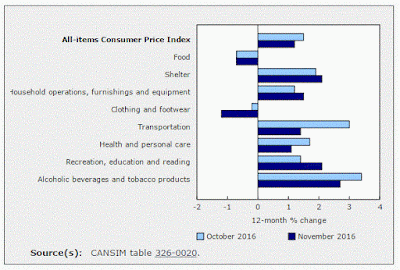Your Mortgage: Variable or Fixed?
There is no blanket, one strategy fits all answer to this question because it clearly depends on a large number of personal circumstances.
Certainly from a macro economic perspective, if interest rates are rising, locking into a longer-term fixed rate mortgage will take out the risk of variable interest rate increases for a few years. However you do have to look a little deeper into what the interest rate increases actually imply.
Variable (floating) rates are based on the Prime Rate (currently at 2.70%), which is set based on Bank Of Canada (BOC) policy which is indicated through the "The Target For The Overnight Rate" (formerly called the Bank Rate, currently set at 0.50%). The overnight rate is the interest rate at which major financial institutions borrow and lend one-day funds among themselves.
The setting of the overnight rate is a function of BOC monetary policy, which is mandated to provide a low, stable and predictable rate of inflation. Their inflation target is 2%. Currently the headline Total Consumer Price Index (last 12 months) is 1.2% (November's data).
There are various measures that the BOC uses to extract more volatile data (like food and /or energy prices) from the total number and they range from 1.3% to 1.9%.
Needless to say, until inflation shows signs of moving higher, the BOC will likely not be raising interest rates and prime and variable mortgage rates should stay at the current low levels.
Longer term, fixed mortgages are based on bond yields and the bond yield curve. Since November and the Trump election, bond markets have pushed yields higher and the yield curve has steepened: longer dated maturity yields have risen faster than shorter term yields, putting upward pressure on fixed mortgage rates.
Bond markets at the 5 year maturity (horizontal axis) are higher by about 0.40% as higher inflation expectations are being built in to the current environment (which is taking anticipated US fiscal spending into account). Increased deficits, also in Canada, will require increased bond issuance, which will also push bond prices lower and yields higher.
As I said initially, there is no simple answer because it depends on your personal financial situation in conjunction with the macro economic outlook: your cash flows and income vs. expenses analysis (Wealth Forecast). Locking in a fixed rate may make sense, depending on your needs. However, the variable rates are likely, over time, going to remain lower (on average) than the longer term rates (steeper yield curve). If your cash flow permits, it may be more sensible to remain variable as those rates will probably rise, but on average, rising variable rates will not cost you more than locking in a longer term rate. Eventually as the economic cycle progresses and inflation is no longer an issue, variable rates will fall, but you do not want to be locked in when this happens.
Feedback...
If you would like to receive this blog directly to your inbox...




1 comment:
تجارة السلع الكويت
https://www.islamictradebanc.com/
تداول الفوركس تداول الذهب تداول العملات تداول السل تداول النفط ادارة محافظ استثماريه تجارة الذهب في عمان تجارة العملات قطر تجارة السلع الكويت تجارة النفط البحرين تداول السلع
Post a Comment